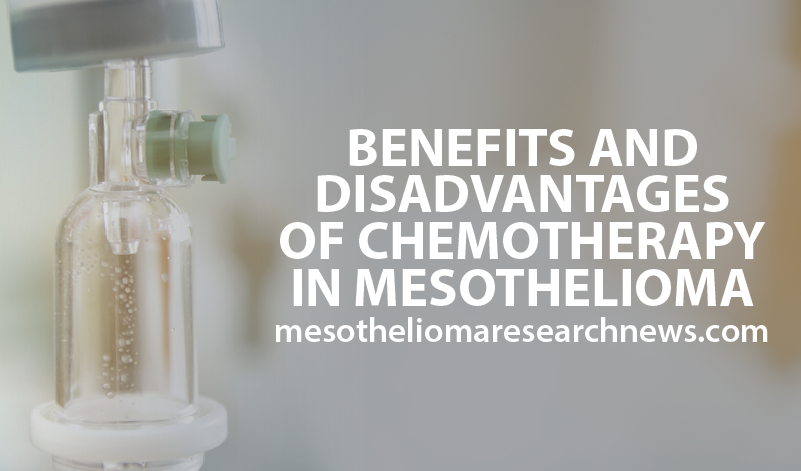
“Chemotherapy has an important role in palliation. It can be administered systemically or directly into the abdomen. The overall response rate reported with a single agent chemotherapy, combined chemotherapy, intraperitoneal chemotherapy, continuous hyperthermic peritoneal perfusion are 13.1%, 20.5%, 47.4%, and 84.6%, respectively. Cisplatin is the most studied agent, with activity in 25% of patients,” state the authors of the study “Peritoneal Mesothelioma: A Review.” The study reveals the improvements in mesothelioma patients’ health after chemotherapy and defines it as preferable and most effective course of treatment to fight mesothelioma cells.
It is particularly indicated when surgery is no longer an option for being too dangerous. However, it also has numerous side effects, including hair loss, nausea and vomiting, lower platelet count, compromised immune system, body aches, tingling in the feet and hands, anemia (decreased red blood cells), loss of appetite, constipation or diarrhea, rash, fatigue, and fever. Given its great impact, it is important for both patients and loved ones to be aware of the advantages and disadvantages of the treatment beforehand.
Learn more about mesothelioma here: http://bit.ly/learnMesothelioma
Note: Mesothelioma Research News is strictly a news and information website about the disease. It does not provide medical advice, diagnosis or treatment. This content is not intended to be a substitute for professional medical advice, diagnosis, or treatment. Always seek the advice of your physician or other qualified health provider with any questions you may have regarding a medical condition. Never disregard professional medical advice or delay in seeking it because of something you have read on this website.

